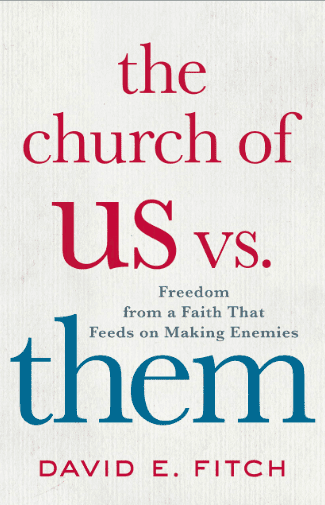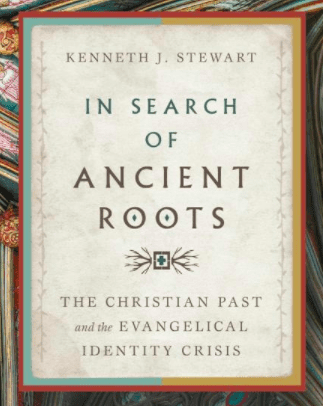 I recently received, courtesy of the publisher, a copy of the new book The Anointed: Evangelical Truth in a Secular Age by Randall Stephens, an associate professor of history at Eastern Nazarene College and Karl Giberson, formerly a professor of Physics at Eastern Nazarene. Giberson has now moved on to concentrate on a number of writing projects. In this book Stephens and Giberson examine several different case studies to explore the manner in which “America’s populist ideals, anti-intellectualism, and religious free market, along with the concept of anointing – being chosen by God to speak for him like the biblical prophets” influence broad ranges of evangelical and fundamentalist beliefs.
I recently received, courtesy of the publisher, a copy of the new book The Anointed: Evangelical Truth in a Secular Age by Randall Stephens, an associate professor of history at Eastern Nazarene College and Karl Giberson, formerly a professor of Physics at Eastern Nazarene. Giberson has now moved on to concentrate on a number of writing projects. In this book Stephens and Giberson examine several different case studies to explore the manner in which “America’s populist ideals, anti-intellectualism, and religious free market, along with the concept of anointing – being chosen by God to speak for him like the biblical prophets” influence broad ranges of evangelical and fundamentalist beliefs.
This is a book that every pastor should read. Not because you will agree with everything that Stephens and Giberson claim (I certainly don’t). And not because you will find the style winsome and uplifting – it can be rather brash, cynical, and/or provocative at times. Rather it should be read because it is important that anyone who aspires to be a teacher and leader think hard about how we approach knowledge and authority. What role does truth play – especially when compared with charisma, story, and cultural clues identifying someone as one of us?
Chapter 4 of The Anointed takes on Hal Lindsey, Tim LaHaye, and the question of last times prophecy, Armageddon, and rapture.
Have you read The Late Great Planet Earth by Lindsey or the Left Behind series by LaHaye?
Do you think this understanding of eschatology is right?
If not, do you think it is a problem?
Both Hal Lindsey and Tim LaHaye developed enormous followings. The 20th century had witnessed two great wars, the Holocaust and the rise of the communist menace. The tumultuous culture of the 1960’s with images of free love, drugs, and antiwar protests weighed heavy on many. Hal Lindsey, following his education at Dallas Theological Seminary, was with Campus Crusade at UCLA in southern California at the time. He did not invent last times prophecy, this is dated much earlier in the 1900’s and even into the 1800’s, but he popularized and promoted it widely. Lindsey published The Late Great Planet Earth in 1970 selling 20 million copies by the early 1990’s (p. 158) followed in 1980 by The 1980’s: Countdown to Armageddon which sold 360,000 copies in the first nine months (p. 159). Lindsey was and is a man with a message, and the message sells, he makes it sell.
Tim LaHaye’s fictional portrayal with Jerry Jenkins of last times prophecy in the Left Behind series is even more successful. “As of 2009 the 16 novels had sold 70,000,000 copies, making the series one of the all-time best sellers in American publishing history.” (p. 169) The series derides everything secular, liberal, and humanist. According to Stephens and Giberson:
The books offer little insight into serious global issues, but they do reveal the anti-intellectual and antielitist views of the authors. The chattering classes and the sophisticates are special targets in the books. (p. 170)
Like Lindsey, LaHaye has a story to tell – it is in fictional form to be sure, but cast in such a fashion to bring many Christians along. The details may be fictionalized – something like a historical drama … after all “the Bible is history written in advance” according to the reading of LaHaye and many others – but the context is straight from Scripture.
Although the premillenialism and end-times rhetoric of Lindsey and LaHaye or their predecessors were not central to my experience growing up in the church the influence was still felt. The rapture was something both a little frightening and a comfort. I recall praying that if it is going to be soon, please come before this or that big test or challenge. Songs like the following by Larry Norman were quite popular.
The critics. The populist view of Lindsey, LaHaye, and Norman is not favored by many biblical scholars. There are not many seminaries that teach the kind of premillenialism popularized by Lindsey and LaHaye. Yet lay Christians and pastors alike eat it up, preach it, and believe it. Stephens and Giberson bring up several well known Christian scholars and thinkers who urge caution and offer critique. Eugene Peterson reflected on “growing up with the burden of the rapture on his heart and mind.” He finds it irresponsible and damaging to take Revelation out of context and without regard for St. John the poet, writing in an apocalyptic form. N. T. Wright calls the approach and outlook of LaHaye frighteningly unbiblical. Mark Noll in The Scandal of the Evangelical Mind gave a scathing critique of dispensationalism and of rigid end-times dogmatism.
The Best Story. But Lindsey and LaHaye had the upper hand and their successors will continue to hold the upper hand. Stephens and Giberson conclude:
LaHaye and Lindsey shunned allegorical, poetic, and all nonliteral perspectives. Such interpretations looked fanciful, even dangerous to them. They assaulted their poetry-loving skeptics. “They are just liberal socialists, really,” LaHaye said in 2007 of those who doubted premillenialism. Premillenialism wasn’t an interpretation, it was the interpretation. Critics, in LaHaye’s estimation “don’t believe the Bible.” Millions of readers bought the Left Behind books, said LaHaye, because they took the Bible literally. And for all their sneering ivory-tower trumpeting of the Bible as literature, liberals and moderates, ironically, couldn’t tell a good story: “What [critics] probably will come up with is a plausible explanation from their liberal standpoint to satisfy their adherents that are reading our series and liked it.” But that interpretation “will be inferior,” he concluded, “because the story will be inferior.” (p. 178-179)
Not limited to end-times prophecy. When authority rests on mass appeal, on charisma, and on the good story told with a confident certainty and flair, people will always be susceptible to the “whims of the confident, if misguided and uninformed, prophecy experts.” If it isn’t prophecy experts, it will be a Creation Museum, flood geology, and stories of the divine institution and providential place of America in world history. Careful biblical study, the pursuit of rigorous understanding in science, and detailed archival study of American history will never tell the same kind of confident and compelling story.
If we’ve moved past these issues, and many of the next Christians may have as these issues don’t seem as deeply ingrained for the 20-35 year olds as for my generation, we should be asking what the next convincing story is or will be.
Is the rapture and end-times theology a convincing and important part of the Christian story?
What is the point and purpose of Revelation?
What is the story we should be telling?
If you wish to contact me directly you may do so at rjs4mail[at]att.net.
If interested you can subscribe to a full text feed of my posts at Musings on Science and Theology.















